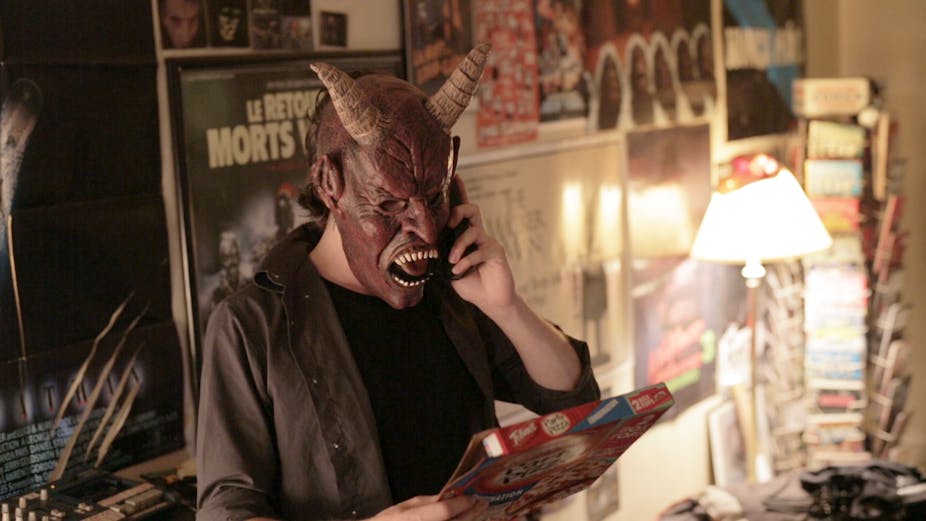The Kafkaesque nightmare that underpins Joel Potrykus’ Buzzard might not be just located on the screen. Buzzard, which screened at MIFF 2014 as part of the international panorama program, is an uncomfortable film.
We watch helpless as the haplessly unethical Marty Jackitansky (Joshua Burge) descends into degeneration fuelled by petty crime. He cashes cheques that aren’t his and pulls off minor conman stunts. However, as the film unfolds and Marty’s crimes catch up with him, for me, the moral compass turns squarely on the audience. The film is a dissertation against contemporary capitalism and its ravages – but equally it’s an invitation to audiences to check their own sources of moral disapproval.
If Buzzard is subversive, that is because on the surface the film appears as a warning against Marty’s petty, nerdish aggression. But while we may disapprove of his pathetic acts, our lives often contain similar defects. Marty has a penchant for junk food, computer games, heavy metal music. He hates his job, if with some perversity. These are common traits – they can hardly be summarily dismissed as quirky or alternative.
Finding subversion in Buzzard
The typical language developed for such a piece of “independent” cinema is “grunge weirdness”. That’s the term Variety used. Potrykus himself says of Buzzard, “It’s an art film disguised as a violent, slacker black comedy nightmare”.
The audience I watched the film with at MIFF was well tuned to the independent slacker genre and the tribulations of a heavy metal afflicted pop culture addicted loser. Where the film is subversive is in the way it mocks an audience who might want to see Marty Jackitansky as a strange “other”.
Potrykus pushes Marty’s habits to the limits, using close-ups of his Buster Keaton-esque, hang-dog face to evoke his pain in everyday life. But this pain also mirrors our own inevitable foibles. The everyday banalities of life, the small idiosyncratic affectations we practice and the antagonisms and anxieties we produce are universal. Using this logic Buzzard challenges the viewer to account for the ethical dimension of their lives, not judge the paucity of Marty’s.
Lucky I am not Marty
Potrykus gives us plenty of reasons Marty Jackitansky and his ultra-geek friend Derek (played by Potrykus). But these guffaws are at least in part due to the fact that the film audience doesn’t identify with them. They are geeks and nerds and we are not. They obsess with snack foods and computer games and we don’t. They inhabit an arthouse film world – but we know that this is not the real film world. Buzzard can be seen to inhabit that world on the other side of Silver Linings Playbook (2012).
Buzzard is in effect quirky – and quirk belongs on the fringe. Or does it?
Life itself might be quirky and the default position is with mind numbing jobs and the minutiae of day to day existence. An obsession with snack food is structurally similar to an obsession with vegetable juice or cappuccino. We need to develop a different vocabulary of interpretation to deal with films like Buzzard – one that doesn’t just marginalise it as weird or quirky.
The Melbourne International Film Festival 2014 screened during August 2014. See all MIFF 2014 coverage on The Conversation here.

